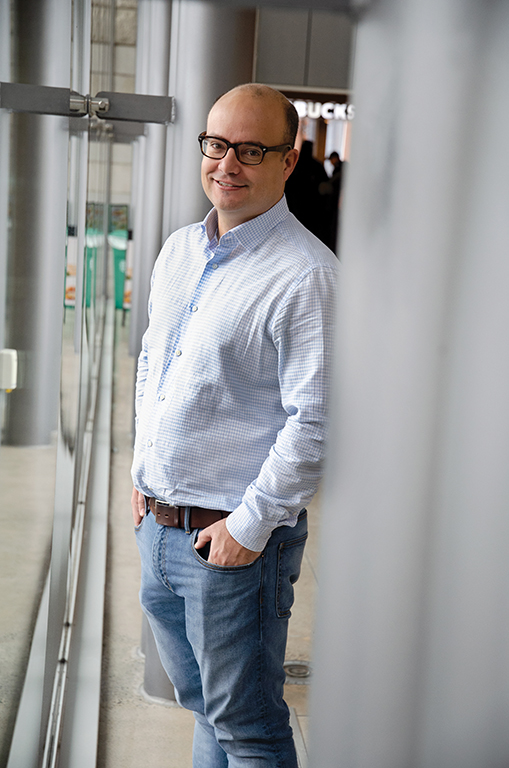Lights, Camera, Competition!

For a young Ricard Gil growing up in Barcelona, Spain, Saturday nights meant one thing: movies! “My father worked in the film distribution business, and every Saturday my father, mother, brother and I would go out to dinner, then see a movie. We did that every Saturday, even when I was in college.”
Gil (right) still loves the movies. His all-time favourite: The Godfather. But even an awful flick can be redeemed. “There are usually three minutes in any movie that are remarkable. Even a bad American comedy usually has one good joke.”
An associate professor of business economics, Gil came to Smith last spring after seven years at Johns Hopkins University in Baltimore. Before that, he taught at the University of California in Santa Cruz. He earned his undergraduate degree in economics from Pompeu Fabra University in Barcelona in 1999, then got his master’s and doctoral degrees in economics from the University of Chicago.
As a researcher, Gil studies competition. For example, he’s currently examining how airlines make scheduling decisions during bad weather. Do they reshuffle their own flights or do they reschedule those that are outsourced to regional carriers?
Given Gil’s love of movies and his family’s roots in the business (Gil also worked in a theatre while in school), it’s no surprise that the film industry sometimes stars in his work. He studied the competitive environment of the movie business in Spain, where, unlike in North America, film studios also own theatres, in which they play their own movies and those of other studios. Two other papers of his examined the impact of racial segregation on various aspects of the movie-theatre business in the United States in the 1940s and 1950s.
“I study the effects of competition on market structures and market outcomes,” Gil explains. “Does competition force me to lower my prices, tailor my shipments or offer other incentives? I tend to focus on the ultimate question: How does competition change the transaction?”
His research has implications for business and government. One of his studies looked at how incumbent airlines in the U.S. reacted when existing airlines merged or new low-cost carriers started. The result: Rather than slash services, existing carriers increased flights and seats, while reducing cancellations and delays.
The findings hold useful lessons for airline-industry watchdogs. “They should look at whether competition increases quality,” Gil says, “not just whether prices went down.”
